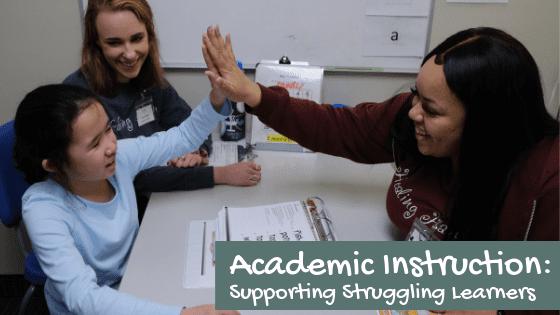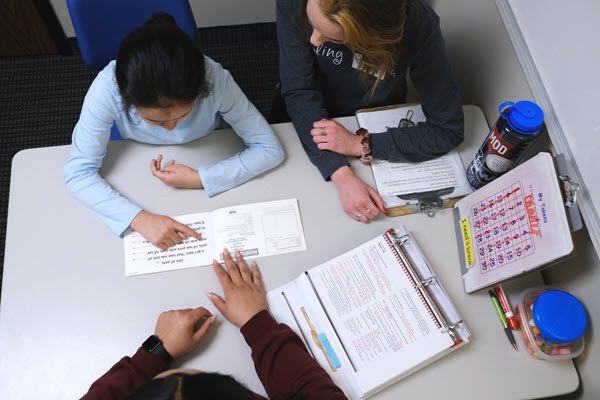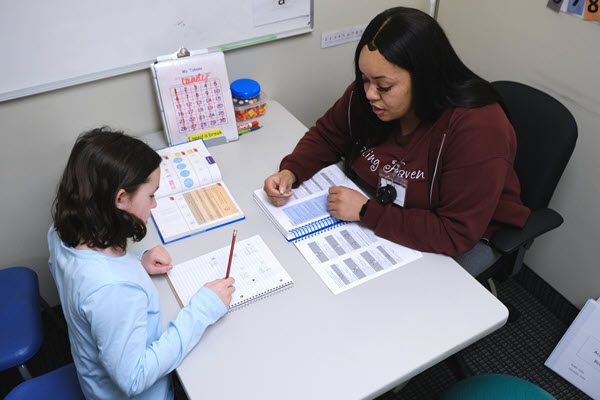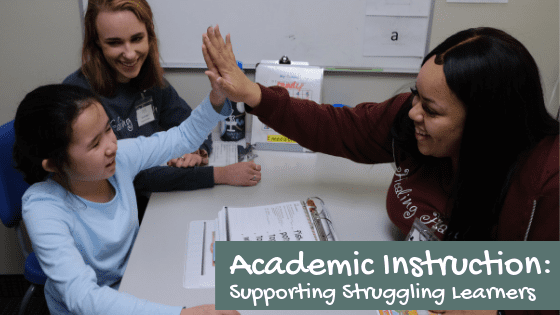
Healing Haven’s Academic Instruction Program
Do you have a child who struggles with learning foundational academics like reading or math? Whether they have autism, Down syndrome or other learning challenges, you probably look for ways to supplement their academic learning – especially as we get back into the school grove after summer break.
Several of our BCBA’s were previously a Special Education Teacher. Inspired by our clients, we developed a program to help address this need. In January of 2019 we launched our Academic Instruction program, affectionately call “AI”, and it is growing rapidly.
We use Direct Instruction to teach academic skills in a one-on-one setting using scientifically proven methods and curriculum. Our academic instruction services all children, pre-K to 12th grade, who struggle with learning.
In our pilot program, 17 students ranging from 7 to 14 years old received academic instruction services. They worked on either reading (decoding and comprehension) or mathematics, or a combination of both. In addition, one participant worked on reading, expressive writing and math.
Promising Results
Eighty-eight percent of the students received one hour of instruction per week in reading and/or math. The remaining 12% received 2 or more hours of instruction per week. We also custom tailored our program to students that are not yet verbal, with 41% of them using a speech generating device to communicate.
In only three months 15% of students increased one grade level in reading and/or math. And based on their first three months of progress, we project 35% will increase by two grade levels in one year. Additionally, it’s worthy to note that 40% of the students projected to make this progress use a speech generating device. In total, all students made gains, with the remaining surpassing their baseline levels.


What does this data show us?
First, we can’t assume that non-verbal communicators can’t learn in the same way that their verbal peers can. Second, when provided with an instruction method specifically designed to support struggling learners, some children who are behind their typically developing peers can make significant progress.
What is Direct Instruction (DI)?
Direct Instruction (DI) is a model for teaching that emphasizes well-developed and carefully planned lessons. The lessons provide small learning increments and clearly defined and prescribed teaching tasks. It is based on the theory that clear instruction eliminates misinterpretations, and as a result can greatly improve and accelerate learning.
Direct Instruction operates on 5 key philosophical principles:
- All children can be taught.
- All children can improve academically and in terms of self-image.
- Every teacher can succeed if provided with adequate training and materials.
- Low performers and disadvantaged learners must be taught at a faster rate than typically occurs if they are to catch up to their higher-performing peers.
- All details of instruction must be controlled to minimize the chance of students’ misinterpreting the information being taught and to maximize the reinforcing effect of instruction.
Why Does DI Work?
The main features of DI ensure children learn faster and more efficiently than any other program or technique available:
- Instruction is at the student’s individual skill level
- Instruction can be modified to match the child’s rate of learning
- The design of the program is to ensure mastery of the content
- The curriculum is field tested with actual students before publication
Next Steps
Parents interested in this program for their child should fill out the Contact Us Form, or call us at 248-965-3916.
You will initially meet with our Program Director to discuss academic goals, specifics about the curriculum and program. Additionally, you will learn about the important role you have, including overseeing homework. We encourage parent involvement for optimal results. Children are then placed into a level and assigned specific curriculum based on parent information, school reports and academic assessments.
If you found this information helpful, we’d love it if you’d share it with your network!

